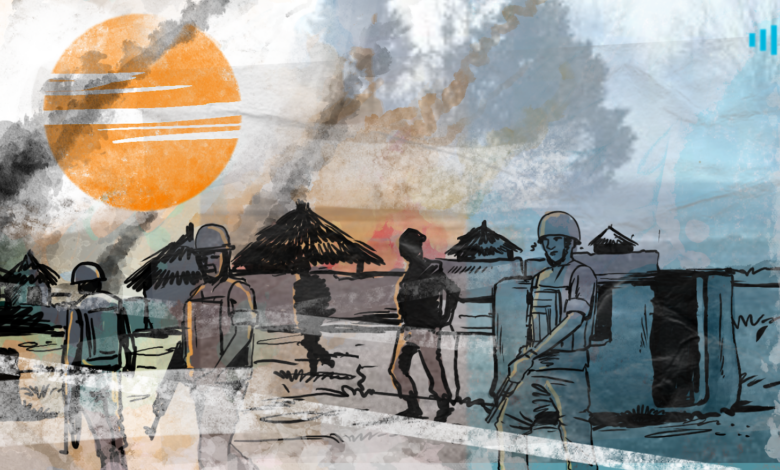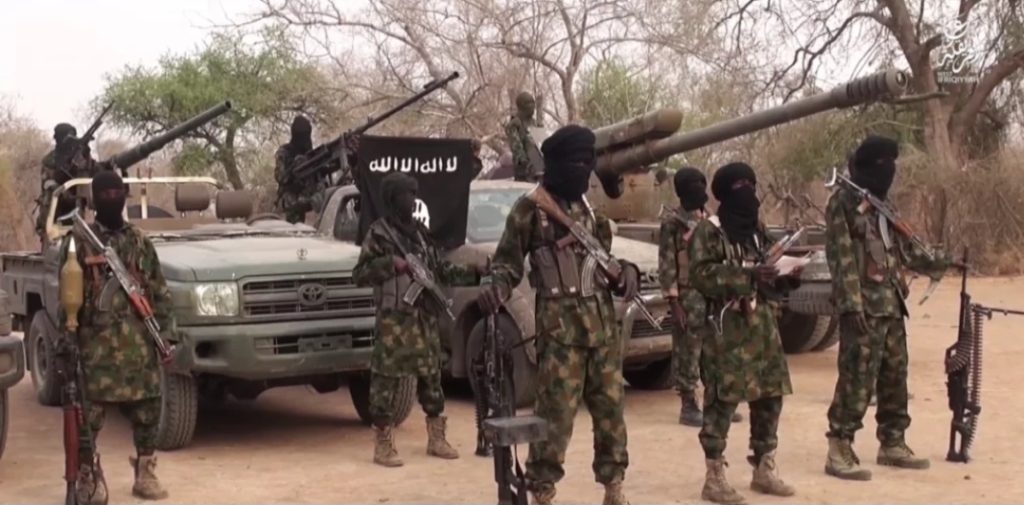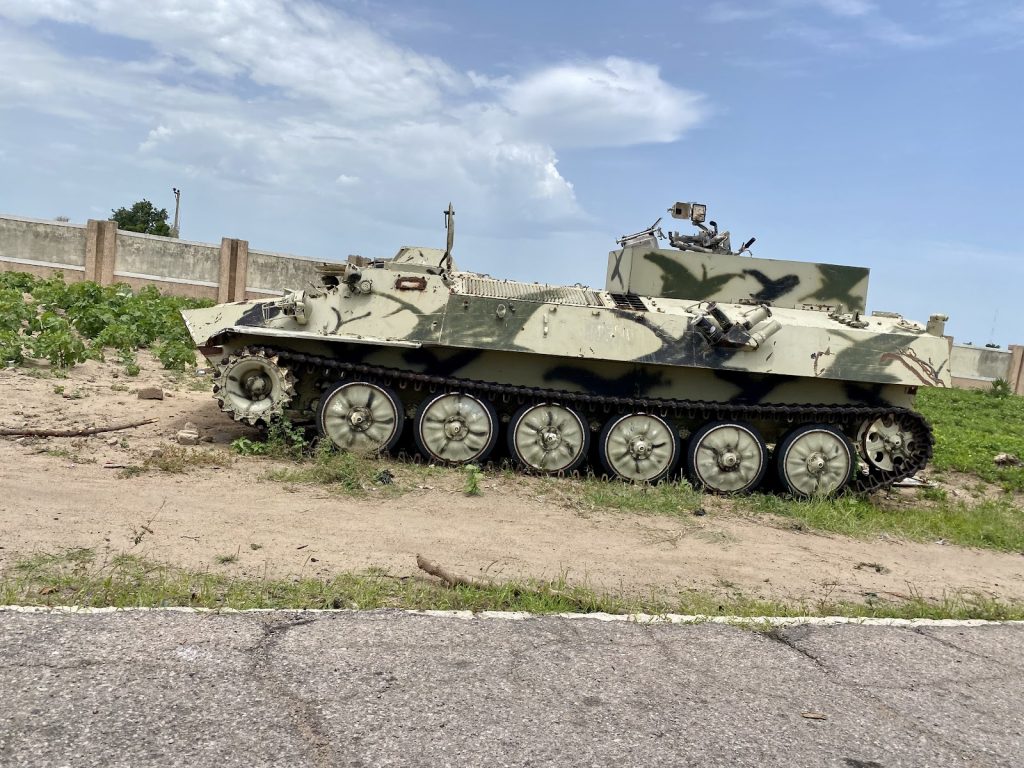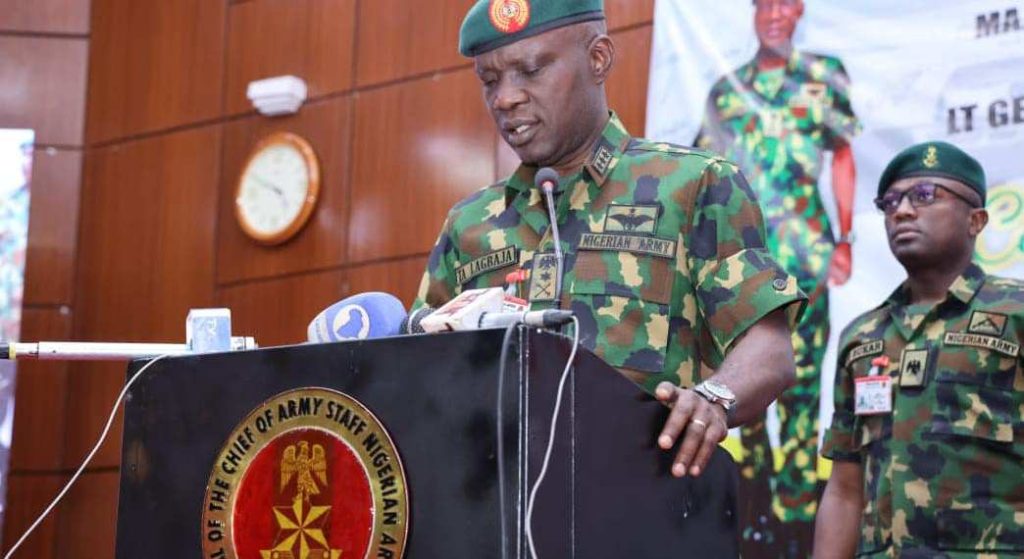Haunted by War: Nigerian Soldiers Battle Trauma After Fighting Boko Haram
For 15 years, Nigerian soldiers have fought Boko Haram in one of the country’s longest conflicts. Yet, many return home with invisible wounds—trapped in an unending battle with PTSD.

Segun Akogun*, a sergeant in the Nigerian Army, left the war-torn streets of Maiduguri, capital of Borno State, northeastern Nigeria, in 2018. Seven years later, he remains haunted by the unimaginable horrors he witnessed on the battlefield while combating Boko Haram insurgents.
Deployed to Monguno local government area in northern Borno in Feb. 2016 from Ojo Cantonment in Lagos State, southwestern region, where he lived with his wife and three children, Akogun spent two years on the frontlines, barely sleeping, always on edge.
“We needed to be on alert because no one knows when the insurgents may attack,” he told HumAngle. “I witnessed the death of some of my colleagues, and it’s hard to shake off the feeling while trying to save my own life.”
Before leaving Lagos, he called home daily while at work to check on his family every day. But in Monguno, that changed. The calls stopped. His family, left in the dark, feared the worst.
‘The unending war’
Since 2009, Boko Haram has evolved into one of the world’s deadliest terror groups, seizing vast territories, displacing millions, and killing nearly 350,000 people by 2020, according to the United Nations Development Programme (UNDP).

Despite efforts by the Nigerian military and the Multinational Joint Task Force, Boko Haram remains a threat in the Lake Chad region, spanning Nigeria, Cameroon, Chad, and Niger. Yet, behind the statistics of casualties and displaced persons, there is another toll—one often overlooked. Many soldiers return from battle physically intact but mentally shattered, trapped in an unending war within themselves—battling Post-Traumatic Stress Disorder (PTSD).
Though Akogun left the battlefield, he remains a prisoner of its memories. Back in Lagos, in his barracks, he would wake suddenly, drenched in sweat, reaching for a rifle that wasn’t there.
“I was already used to the forest where we were combating terrorists. So, things were different when I returned back to Lagos. I’d wake up in a cold sweat, reaching for my rifle,” he said. “I usually forgot I was no longer in the bush.”
The soldier added that the memories of his fallen colleagues also haunted him, saying, “Witnessing some of the deaths was terrible, and it’s hard to ask because soldiers are not allowed to complain about their plights. I’ve been skeptical about returning to war because the previous thought still terrifies me.”
‘I am not a happy man’
For some soldiers, the burden of trauma becomes unbearable. In Feb. 2020, a corporal stationed at the Theatre Command in Borno snapped, killing four of his colleagues before turning the gun on himself. Others numb the pain with drugs or alcohol.
Adeyemo Mukaila*, a 39-year-old soldier who was deployed to Biu LGA in 2022 to replace some soldiers killed by Boko Haram in Southern Borno, has seen enough horror to last a lifetime. The memories follow him everywhere.
“I see blood almost every time I sleep,” he told HumAngle. “Sometimes, I am awakened with the order to shoot by my commander, and when I regain consciousness, I will realise that it’s just nightmares.”
He has tried to take his own life more than once. “I am always lucky enough to have alcohol and drugs around to suppress the trauma,” Mukaila said. “I may look physically fit, but I am mentally disturbed; I am not a happy man. I don’t have peace except I am on substance.”
For others, military bureaucracy compounds the suffering. Muhammad Akeem*, a former trooper with the army’s 202 Battalion in Bama, missed his mother’s funeral in 2020 because he was denied leave.
“I was disturbed that I couldn’t give my mother the last respect,” he said. “Before my mother died, she called on the phone crying that she wanted to see me, but I couldn’t make it till she passed away. Even after the death, I didn’t get permission to leave the battleground. I feel bad each time I remember this scenario. Sadly, some of my siblings thought I purposely decided to stay back, which even demoralised me more.”
A neglected crisis
Mental health experts say PTSD triggers intense, distressing thoughts and emotions linked to past traumatic events, persisting long after the danger has passed. “They may relive the event through flashbacks or nightmares; they may feel sadness, fear or anger; and they may feel detached or estranged from other people. They may have strong negative reactions to something as ordinary as a loud noise or an accidental touch,” a medical study reads.

Rasheedat Balogun, a mental health specialist and founder of Talking Mental with Arrbee, describes Nigerian soldiers as one of the greatest victims of the Boko Haram insurgency.
“PTSD is a crippling reality for many soldiers, but many are neglected to carry their crosses alone. Many soldiers on the battlefield need to be diagnosed by psychiatrists and psychologists who can offer lifelines. It’s not because they’re soldiers that they behave abnormally,” she told HumAngle. “It’s because of what they’ve endured.”
Balogun urged families and communities to support affected soldiers rather than judge them.
“Soldiers are humans too, not machines,” Balogun said. “They deserve compassion and understanding. So, the authorities must ensure that there are programmes for their welfare, including regular check-ins, mental health services, and family reunifications. All of these affect their mental health and performance on the war front.”
Esther Olabisi Olowokeere, a mental health consultant and fellow of the West Africa Postgraduate College of Nurses and Midwives, advised that soldiers should have access to rehabilitation and psychological sessions to beat depression after returning from the battlefield.
“It is pathetic that soldiers serving their nation are left to suffer and denied access to their families. There should be checks and balances to ensure the military authorities also care for the families left in the barracks. In fact, there should be the employment of mental health professionals at the war front to help soldiers with necessary medications, and soldiers’ protest should not be treated as mutiny,” Olowokeere advised.
‘You dare not’
Despite years of neglect, there have been some efforts to address the crisis. Upon his appointment in 2023, former Chief of Army Staff, Taoreed Lagbaja, admitted that several soldiers on the frontline of the war against Boko Haram terrorists are grappling with substance abuse, PTSD and fatigue, hence the need to review army tactics, techniques, and procedures to come up with both kinetic and non-kinetic strategies to defeat these issues.

In August 2023, Nigeria’s Defence Headquarters (DHQ) established PTSD Centres for soldiers across different theatres of operations to address the mental health challenges faced by military personnel. However, for many, the intervention has come too late—or not at all.
Edward Buba, the DHQ spokesperson, has yet to respond to HumAngle’s enquiries about the army’s efforts to support soldiers like Akogun and Mukaila. Mental health experts stress that tackling the crisis requires collaboration between the government, the military and soldiers’ health maintenance organisations to provide adequate support.
They also called for legislative policies to improve the mental health care and support services of Nigerian soldiers, especially at a time when the country is battling to suppress deadly terror groups that continue to upend lives.
Meanwhile, soldiers say complaining to superiors is not an option. “You dare not,” one soldier said. “Or you’ll end up in the guardroom.”
Names* of soldiers interviewed for this report were changed to prevent them from being punished by Nigerian military authorities.
The article describes the enduring mental health struggles faced by Nigerian soldiers returning from conflict zones, particularly those who fought against Boko Haram insurgents.
Despite leaving the battlefield, soldiers like Segun Akogun and Adeyemo Mukaila experience profound PTSD, reflecting on combat horrors and the loss of colleagues.
The military's challenging atmosphere exacerbates these struggles, leaving many soldiers to resort to substance use to cope, with little institutional support.
Against the backdrop of Boko Haram's deadly insurgency since 2009, which has claimed hundreds of thousands of lives, PTSD remains a neglected crisis within the Nigerian military.
Mental health professionals emphasize the need for robust support systems, including psychological services for soldiers, legislative initiatives, and community empathy.
While recent establishment of PTSD centers by Nigeria's Defence Headquarters represents progress, systemic changes are urgently needed to address and prevent soldier mental health crises comprehensively.
Support Our Journalism
There are millions of ordinary people affected by conflict in Africa whose stories are missing in the mainstream media. HumAngle is determined to tell those challenging and under-reported stories, hoping that the people impacted by these conflicts will find the safety and security they deserve.
To ensure that we continue to provide public service coverage, we have a small favour to ask you. We want you to be part of our journalistic endeavour by contributing a token to us.
Your donation will further promote a robust, free, and independent media.
Donate HereStay Closer To The Stories That Matter




